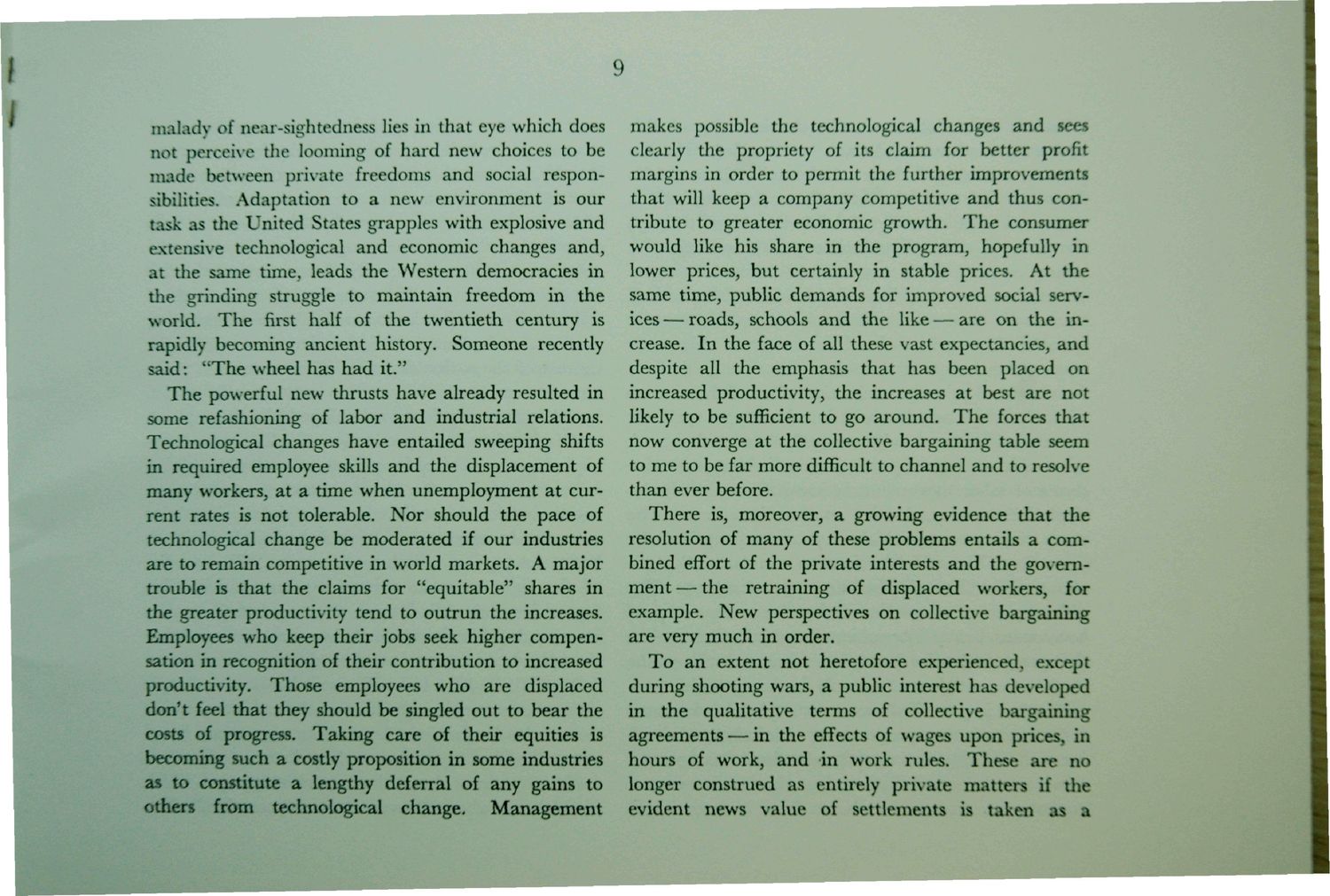| |
| |
Caption: Dedication - Labor and Industrial Relations
This is a reduced-resolution page image for fast online browsing.

EXTRACTED TEXT FROM PAGE:
9 malady of near-sightedness lies in that eye which does not perceive the looming of hard new choices to be made between private freedoms and social responsibilities. Adaptation to a new environment is our task as the United States grapples with explosive and extensive technological and economic changes and, at the same time, leads the Western democracies in the grinding struggle to maintain freedom in the world* The first half of the twentieth century is rapidly becoming ancient history. Someone recently said: ccThe wheel has had i t " The powerful new thrusts have already resulted in some refashioning of labor and industrial relations. Technological changes have entailed sweeping shifts in required employee skills and the displacement of many workers* at a time when unemployment at current rates is not tolerable. Nor should the pace of technological change be moderated if our industries are to remain competitive in world markets. A major trouble is that the claims for "equitable" shares in the greater productivity tend to outrun the increases. Employees who keep their jobs seek higher compensation in recognition of their contribution to increased productivity. Those employees who are displaced don't feel that they should be singled out to bear the costs of progress. Taking care of their equities is becoming such a costly proposition in some industries as to constitute a lengthy deferral of any gains to others from technological change. Management makes possible the technological changes and sees clearly the propriety of its claim for better profit margins in order to permit the further improvements that will keep a company competitive and thus contribute to greater economic growth. The consumer would like his share in the program, hopefully in lower prices, but certainly in stable prices. At the same time, public demands for improved social services— roads, schools and the like — are on the increase. In the face of all these vast expectancies, and despite all the emphasis that has been placed on increased productivity, the increases at best are not likely to be sufficient to go around. The forces that now converge at the collective bargaining table seem to me to be far more difficult to channel and to resolve than ever before. There is, moreover, a growing evidence that the resolution of many of these problems entails a combined effort of the private interests and the government— the retraining of displaced workers, for example. New perspectives on collective bargaining are very much in order. T o an extent not heretofore experienced, except during shooting wars, a public interest has developed in the qualitative terms of collective bargaining agreements — in the effects of wages upon prices, in hours of work, and i n work rules. These are no longer construed as entirely private matters if tine evident news value of settlements is taken as a
| |